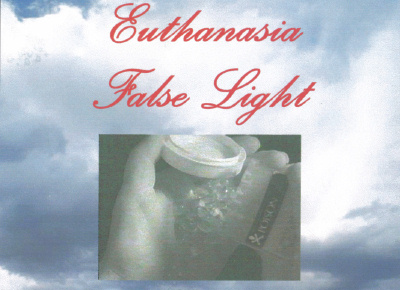Scroll down for articles
2022
Another bill, Assembly Bill 1078, titled the “Our Care, Our Options Act” that would have permitted prescribed suicide has failed.
Text of Bill
If it had passed, Wisconsin could have become a national suicide destination for individuals who are 18 years old or older.
Nothing in the proposal required that an individual be a resident of Wisconsin to qualify for assisted suicide in the state. And, although an 18-year-old would be too young to purchase alcohol, that same person could qualify for a deadly overdose of drugs.
Not only physicians, but other health care providers could have prescribed the lethal drugs.
The bill would have permitted an attending provider (defined as a physician, an advanced practice registered nurse, or a physician assistant) to diagnose the patient as being terminally ill and to prescribe the lethal drugs. (156.03) (2) and (156.03 13 – (a) (b) (c)).
Individuals with controllable conditions would have been eligible for prescribed suicide.
The bill, if passed, would have required that the patient be diagnosed with a “terminal disease” which was defined as an incurable of irreversible disease that was medically confirmed and would have produced death within within six month. (156.03 (16)).
But there are conditions that are controllable. For example, an insulin-dependent person would die within six months without insulin but such an individual would be eligible for the assisted suicide prescription since death would occur within six months without insulin.
2019-2020
Bills (SB 499 and AB 552) to legalize assisted suicide in Wisconsin, introduced in 2019, were carried over to 2020. The bills failed to pass.
Text of AB 552
2017-2018
Both bills introduced in 2017 carried over to 2018. Both bills failed.
A doctor-prescribed suicide bill, 2017 Assembly Bill 216, titled “Compassionate Choices” (LRB-2248/1) was introduced.
Plain text
On June 23, 2017, a doctor-prescribed suicide bill, 2017 Senate Bill 312, also titled,”Compassionate Choices,” was introduced.
Text of bill
2015
Two identical doctor-prescribed suicide bills titled, “Compassionate Choices.” were introduced in Wisconsin but failed to pass.
Text of SB 28
Text of AB 67
Analysis of SB 28 and AB 67
Scroll down for news articles
Current law regarding assisted suicide
Whoever, with intent that another take his or her own life, assists such person to commit suicide is guilty of a Class H felony.
[Wis. Stat. § 940.12]
Background
The Democratic Party of Wisconsin’s 2014 platform, adopted on June 7, 2014, states that the party believes in “the individual’s right to choose death with dignity including physician-assisted end-of-life. Everyone has the right to timely obtain medications, properly and legally prescribed by their health care provider from any licensed pharmacy.”
In 2007, Rep. Frank Boyle (D-Superior) and Sen. Fred Risser (D-Madison) once again introduced their bills to legalize assisted suicide. The measures were similar to the law that legalized assisted suicide in Oregon.
The two legislators had introduced such bills in session after session. Each time, the bills languished in committee, never progressing to a vote by either legislative chamber.
Promotion of legalized assisted suicide and euthanasia is not new in Wisconsin. In 1975, Rep. Lloyd Barbee (D-Milwaukee) introduced a “right-to-die” bill (AB1207) that would have permitted persons as young as 7-years-old to request that their lives be terminated. The measure would also have permitted “any person 14 years of age or older to terminate the life of the requestor.”
Articles
“Wisconsin lawmakers introduce legislation that would legalize physician-assisted suicide”
(CBS58-Milwaukee — September 20, 2019)
“Lawmakers propose allowing terminally ill choice of suicide”
(LaCrosse Tribune — January 25, 2015)
Calling it the “compassionate choice” bill, three Madison-area Democrats on Friday said they plan to introduce a proposal to allow dying patients the choice of ending their lives with medical help.
Sen. Fred Risser, D-Madison, said this will be the seventh time he has introduced the proposal in the past 20 years.
“State should ration health care, doctor association proposes”
( Wisconsin State Journal – – January 9, 2011 )
The Wisconsin Medical Association is proposing that, as the state prepares to plug a $1.3 billion Medicaid hole, it should look beyond cutting enrollment, payments and entire benefit programs to another option: rationing care, as Oregon does…Physician-assisted suicide, which because legal in Oregon in 1997, is not among the services ranked but is covered by the [Oregon] state’s Medicaid program.




